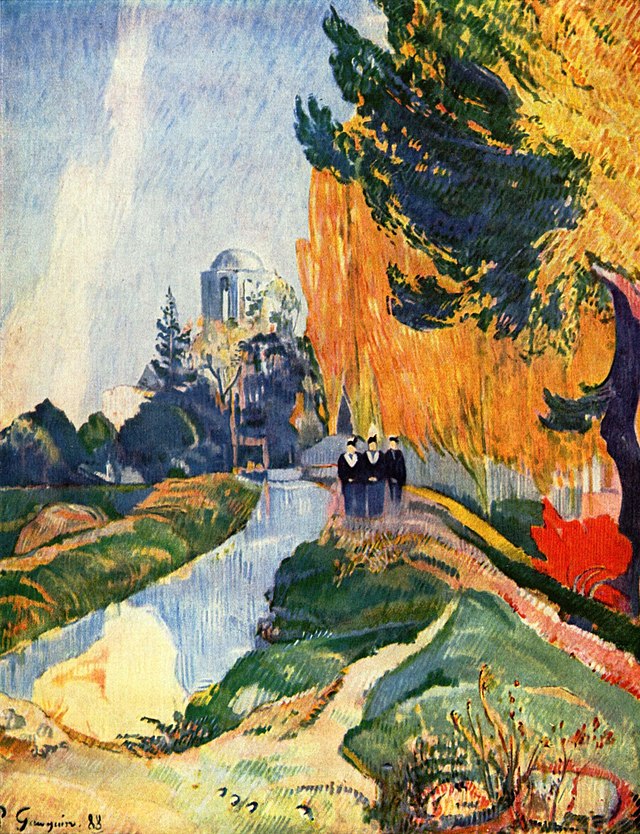
Here’s a little poem by William Blake, which my father sent me in response to my piece on detachment, that says it all:
He who binds to himself a joy
Does the winged life destroy;
But he who kisses the joy as it flies
Lives in eternity’s sunrise.
I think that’s exactly what I was groping my way towards. Of course, it still doesn’t answer the question of what it means to bind yourself to a joy, or how exactly to kiss it as it flies! I hope to write a few more thoughts on this later.
Speaking of that post, I feel bad using Metcalf’s painting, The White Veil, as a quick illustration. It really deserves a post of its own. Take a look:

I don’t know enough about art to understand how this can be so beautiful while being so realistic (isn’t that exactly the way the world looks through a veil of snow?). I never get tired of looking at this, even in the middle of a New England winter. I’ve always loved landscapes, even the more boring, extra-realistic ones. I’d rather look at a landscape than a portrait any day. I could look at this one all day:
Branch of the Seine near Giverny, Claude Monet
I guess it’s the composition that’s so pleasing in both of these paintings. Gauguin’s wonderful at this, too:

L’Aven en contre bas de la Montagne Sainte-Marguerite

Les Alyscamps
In the next week or so I hope to be posting reviews of a few books, including a fascinating new theological fantasy, some thoughtful and clever historical science fiction, and the first of a small series on self-help books that I’ve found to be truly helpful. In the past I had a dismissive attitude toward self-help books, but I’ve come to realize that even the silliest books have a core of truth, if you’re willing to see it. They’re like cliches; if you can get past the corniness, you’ll realize that they’ve become cliche for a reason: they’re true.

